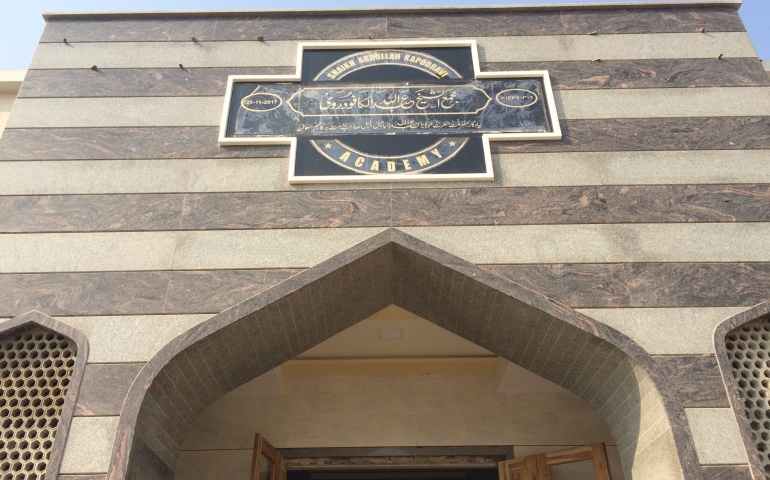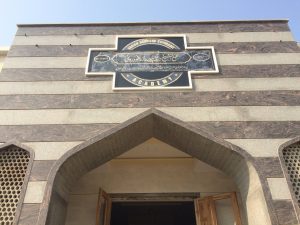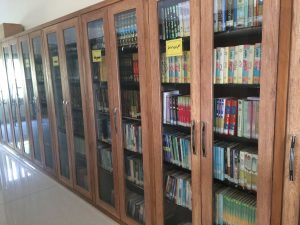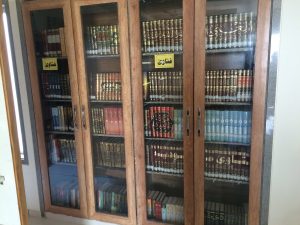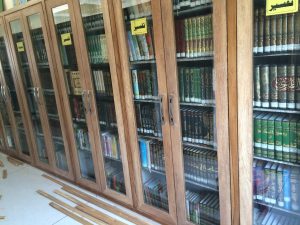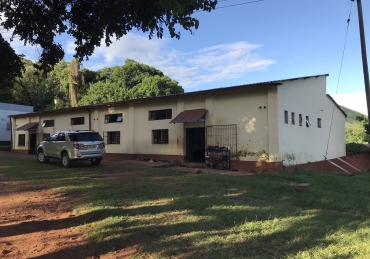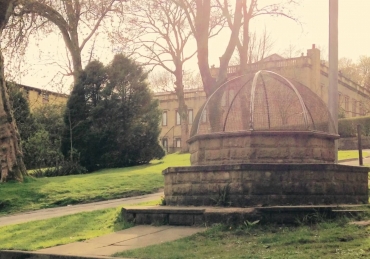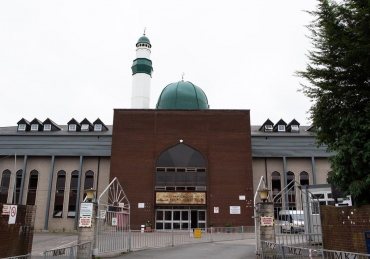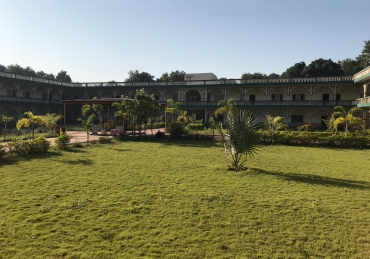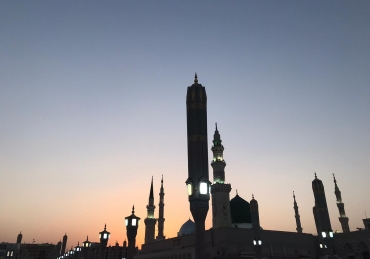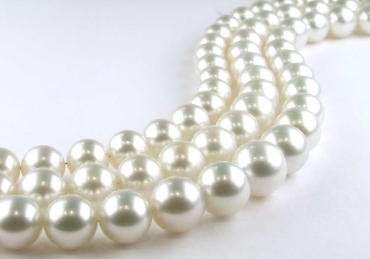The Demise of Mufakkir al-Ummah Ḥaḍrat Mawlānā ʿAbdullāh Kāpodrawī Ṣāḥib (1352/1933 – 1439/2018)
It is with great sadness and sorrow we learnt of the demise of Ḥāḍrat Mawlānā ʿAbdullāh Kāpodrawī Ṣāḥib earlier today at approximately 11.30am UK time (4pm India time) after remaining ill for several months. This is a great loss for us all. Ḥaḍrat Mawlānā possessed an amazing and unique personality. He served the Ummah throughout his life with great passion and distinction. He served as the Principal of the seminary in Tadkeshwar, Gujarat, India for twenty-six years between 1966 and 1992 and was renown for his leadership, management and inter-personal skills as well as his wisdom, intellect and humility. He possessed excellent command of the Arabic language and authored several books. He was a linguist and a walking library.
Ḥaḍrat Mawlānā was born on 28 December 1933 (11 Ramaḍān 1352) in Burma. His family returned to India in 1935. After completing his early education at a local Madrasah, he enrolled at the famous seminary in Dabhel in 1944 and graduated in 1953. During this period, he had travelled to Deoband to complete his studies, however, returned to Gujarat due to illness. Following his graduation in 1953, he returned to Deoband and remained in the company of great luminaries for two years. His teachers include Mawlānā Fakhr al-Dīn Murādābādī (d. 1392/1972) and Mufti Mahdī Ḥasan (d. 1396/1976) among others. He also had Ijāzah in ḥadīth from Shaykh al-Ḥadīth Mawlānā Muḥammad Zakariyyā Kāndhelwī (d. 1402/1982), Ḥakīm al-Islām Qārī Muḥammad Ṭayyib (d. 1403/1983) and Shaykh ʿAbd al-Fattāḥ Abū Guddah (d. 1417/1997) and enjoyed a close a relationship with Shaykh Abū al-Ḥasan ʿAlī al-Nadwī (d. 1420/1999) and Muḥaddith al-ʿAṣr Mawlānā Muḥammad Yūnus Jownpūrī (d. 1438/2017). His teaching career began at Dabhel in 1959 where he taught for seven years. In 1966, he was offered a teaching post in Tadkeshwar and very soon was offered the Principalship, a role which he diligently fulfilled for twenty-six years. Ḥaḍrat Mawlānā remained active in various national and international Islamic and educational forums and was a frequent traveller. He also served in the Shūrā of many seminaries of India and was a father figure to many.
Over the past twelve months, I was fortunate to have met him on three occasions; first in August 2017 in London, thereafter in Canada in the same month and more recently in January 2018 in Kapodra, India at his residence. Prior to this, he also visited our home and was pleased with the variety of the books and made note of the some of the new books. Although each encounter was brief, it left a lasting impression. When I met him in January 2018, I tweeted the following ten qualities of his:
- Simple
- Selfless
- No Takalluf (pretentiousness)
- Iʿtidāl (balance)
- Respect
- Foresight
- People developer
- Encouraging, especially to youth
- Well-informed and widely read
- Does not speak ill of critics
Ḥaḍrat’s grandson Mawlānā Muʿādh Ibrāhīm made the following additions:
- Performing Tahajjud Ṣalāh
- Prompt and Punctual
- Humility: Young, important, non-important all deserve attention
- Gracious, polite speech
- True student (learns from his students, peers and seniors)
- Tolerance
- Literary enthusiast
- Hospitable to Muslims and non-Muslims.
Ḥāḍrat Mawlānā was from among those personalities regarding whom much had already been penned during his life. This is testament to his contribution and the acceptance Allah Almighty had placed for him on earth. Undoubtedly, much more will be written about him by his students and close associates over the coming weeks. What follows is a collection of notes I wrote during my encounters with him.
Ḥaḍrat said in August 2017: “Mawlānā Badr ʿĀlam Mīrthī[1] told me in Madīnah Munawwarah to tell the teachers: When you teach Mukhtaṣar al-Qudūrī, do not try to teach Fatḥ al-Qadīr. When you teach the translation of the Qurʾan, do not try to teach Tafsīr Ibn Kathir.” In other words, do not overwhelm the students who in their early studies with detailed and complex discussions; rather, focus on teaching the student according to his level. It was clear from listening to Ḥaḍrat Mawlānā that he possessed a wealth of knowledge and experience in the field of education.
Ḥaḍrat said in August 2017: “Shaykh Yūnus Ṣāḥib was widely read and would speak after extensive research.” Ḥaḍrat Mawlānā enjoyed a close relationship with Shaykh Muḥammad Yūnus Jownpūrī and was also his disciple. A few months ago, in a conference organised in Kharod in the memory of Shaykh Muḥamamd Yūnus, Ḥaḍrat Mawlānā delivered a passionate speech and critiqued the narrow mindedness of some people. When I met Ḥaḍrat Mawlāna ʿAbdullāḥ Ṣāḥib in January 2018, he mentioned that he had read the Arabic articles collated by Shaykh Muḥammad ibn Naṣir al-ʿAjmī of Kuwait regarding Shaykh Muḥammad Yūnus Jownpūrī and suggested that this was the best collection of articles written thus far on Shaykh. Despite being an insignificant young student, he also said some encouraging words to me. This practice of his of providing encouragement to others and regarding the success of others as one’s own success was central to his personality and lies at the heart of his accomplishments, and all praise belongs to Allah. Ḥaḍrat Mawlānā was extremely appreciative of the efforts of others and of anyone who had done any favours for him. When my respected father Mufti Shabbīr Aḥmad (b. 1376/1957) sent him a copy of Shaykh Shaykh Muḥammad ibn Naṣir al-ʿAjmī’s book, he phoned him a few days later to thank him. This was the appreciation and good character of this visionary leader who will be missed by many.
Ḥaḍrat said in August 2017: “The main cause for the prevalence of disunity and friction among Muslims is lack of sincerity.” This is a short yet profound statement which explains the differences that exist within us today.
Ḥaḍrat said in August 2017: “Ḥaḍrat Mawlānā Qāsim Nānotwī’s favour upon the Ummah cannot be repaid.”
Ḥaḍrat said in August 2017: “Ibn Taymiyah Raḥimahullāh was among those luminaries who excelled in writing and fighting. He was صاحب السيف والقلم. There are not many examples of luminaries who combine both. He was ahead in the battlefield as well. His opponents conducted a lot of propaganda against him. Ḥaḍrat Shāh [Anwar Kashmīrī] Ṣāḥib held him in high esteem. He would remark: Our hats fall down in front of his knowledge. Mawlānā ʿAlī Miyā Nadwī wrote a whole volume regarding him, when I read it that is when the facts came to light. I remember in Darul Uloom Deoband, we were in the Khidmah (service) of Ḥaḍrat Madanī and Mawlānā Manẓūr Nuʿmānī came. Mawlānā had written an article about ʿAllāmah Ibn Taymiyah in his magazine al-Furqān. Ḥaḍrat Madanī said, ‘You have elevated Ibn Taymiyah to the heavens and lowered Ibn ʿArabī to the ground.’ Out of respect, Mawlāna Manẓur Ṣāḥib did not respond.” Ḥaḍrat Mawlānā ʿAbd Allah Kāpodrawī Ṣāḥib confirmed in this gathering that although he spent time in the Khidmat of Shaykh al-Islām Mawlānā Ḥusayn Aḥmad Madanī (d. 1377/1957), he did not formally study or acquire ijāzah in ḥadīth from him. When I visited Ḥaḍrat in January 2018 and presented my book regarding Shaykh al-Islām Ibn Taymiyah (d. 728/1428) to him, he agreed to write a foreword and queried me regarding the position of Shaykh al-Islām Mawlānā Ḥusayn Aḥmad Madanī which appears to be different to the position of other elders.
During this meeting with him at his residence in India, Ḥaḍrat reminded us of the balance, respect and tolerance that existed among our elders which unfortunately is being lost. Ḥaḍrat explained that a disciple of Mawlānā Ashraf ʿAlī Thānawī (d. 1362/1943) was inclined to Mawlānā Ḥusayn Aḥmad Madanī’s view on the partition of India which was different to the position of Ḥaḍrat Thānawī. Ḥāḍrat Thānawī advised him to remain on this but cautioned him from speaking ill of the scholars who hold the other view. Ḥaḍrat Mawlānā ʿAbdullāh Ṣāḥīb would not merely narrate these stories, rather he would embody them through practice and behaviour. During this meeting, Ḥāḍrat also said, “I realised the depth and breadth of Mufti Shabbīr Aḥmad Ṣāḥib’s knowledge whilst sitting in his dars (lesson) of Ṣaḥīḥ Bukhārī in Canada” adding that a glimpse into the knowledge of the great scholar from the world of Islam, Ḥaḍrat Shaykh Muḥammad Yūnus Jownpūrī Ṣaḥib, can be gauged from Mufti Shabbīr Aḥmad Ṣāḥib’s discourses.
My colleague during the journey, Shaykh Muḥammad Aḥmad of Ummah Welfare Trust asked Ḥaḍrat Mawlānā for some advice further to the charity supporting some projects recommended by Ḥaḍrat. Ḥaḍrat gave two golden advices based on his life-long experience of education, travelling worldwide and spending time in the company of great luminaries. He said, “Establish and support Madāris (seminaries) and Makātib (supplementary Islamic schools), for they are the forts of our faith. Mawlānā Ḥusayn Aḥmad Madanī said one year after the partition: ‘Madaris are the forts of Islam. Without them, Islam will be eliminated.’” Ḥaḍrat Mawlānā further said, “Provide ‘secular’ education in an Islamic environment. A Muslim school is one which has an Islamic culture not one merely run by Muslims.”
Ḥaḍrat Mawlānā would stress on this final point wherever he went. This is because schools are being used globally to indoctrinate young children and in the state of Gujarat, the vast majority of Muslim children attends schools whereas the number of children attending seminaries is minimal. It is for this reason, as we were leaving Ḥaḍrat Mawlānā he asked us to visit a new project in Kosamba which has an integrated school and Madrasah.[2] Ḥaḍrat Mawlānā also requested us to visit the Shaykh Abdullah Kapodrawi Academy in Kharod, Gujarat which is home to all the personal books of Ḥaḍrat Mawlānā. Ḥaḍrat Mawlānā’s desire, as he mentioned to us, was for this academy to become a centre for research along with serving as a library for wider benefit.
We pray to Allah Almighty to make this project and all of the noble endeavours of Ḥaḍrat Mawlānā a Ṣadaqah Jāriyah for him and a means of salvation. May Allah Almighty grant us the ability to follow in his footsteps and take maximum benefit from his Academy and publications and grant us the qualities he was bestowed with. May Allah Almighty also reward and bless the children and family of Ḥaḍrat Mawlānā who served him, in particular Mawlānā Ismāʿīl Ṣāḥib who along with his wife sacrificed staying in the UK and remained in the service of his father for many years, and grant them all patience. Āmīn.
Yusuf Shabbir
26 Shawwāl 1439 / 10 July 2018
Click here to read the transcript of an invaluable speech for scholars and students.
Click on the following link to read the transcript of the Urdu speech by Mufti Ahmed Khanpuri Sahib: Transcript of Mufti Ahmed Khanpuri Urdu Speech regarding Mawlana Abdullah Kapodrawi
Footnotes
[1] To read more about Mawlānā Badr ʿĀlam, visit the following link: http://islamicportal.co.uk/profile-of-mawlana-muhammad-badr-alam-mirti/.
[2] Visit the following link to read further on the parallel education system: http://islamicportal.co.uk/is-the-parallel-education-system-contributing-to-the-decline-of-the-muslim-ummah/.

